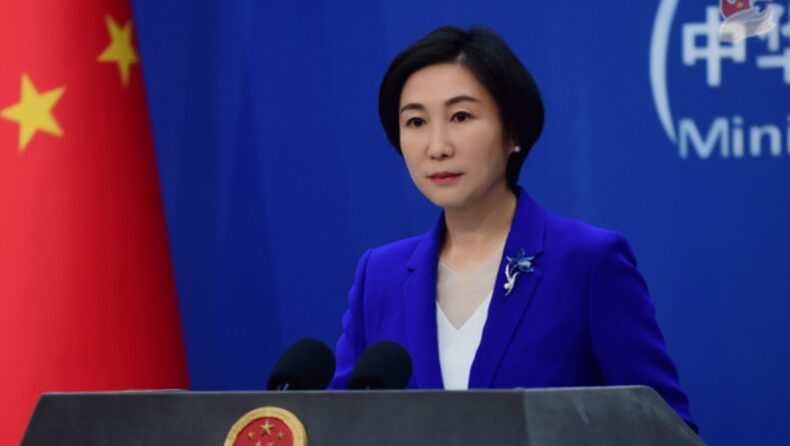On Thursday, addressing a press briefing in Beijing, the spokesperson of the Chinese Ministry of Foreign Affairs, Mao Ning stated that China sees no gains in rhetoric and acts, which add to geopolitical conflicts and power struggles.
The response came a day later after The US released a 48-page National Security Strategy, in which the US policymakers claimed China to be a geopolitical challenge for the US of America. The US also raised its concerns, about China’s aggressive assertion in the Indo-Pacific region.
China’s version of Geopolitical Conflicts
“This kind of cold-war era mentality is outdated and doesn’t serve the aspirations of the global community and necessities of modern times.” Said Mao, elaborating on China’s stance. “Such a mentality will never be appreciated by us and will never succeed,” she added.
The spokesperson further said that China’s developmental objective is the prosperity and happiness of the nation and its citizens, respectively.
“China has been one of the pioneers and top contributors in promoting global peace and maintaining international order, respectively.” said the Chinese spokesperson.
Emphasizing US-China Cooperation
China highlighted the importance of China-US ties for global peace and progress, being the largest developing and developed nations of the world. China emphasized on the role both countries could play together in creating better developmental and economic opportunities for the international community through mutual cooperation.

The Chinese Ministry of Foreign Affairs said, instead of aiding geopolitical conflicts the United States should try to improve their bilateral relations with mutual respect for peaceful coexistence, claiming it to be a win-win engagement for both the nations and the world broadly.
US’s Offensive Approach
The National Security Strategy released by The US state department primarily focuses on China and its aggression on the global order. The US called China its “consequential geopolitical challenge”.
The Geopolitical dynamics have changed a lot ever since Russia-Ukraine started. The uncertainty in the South China Sea is at its peak, be it the inter-ballistic missile tests of North Korea, which has raised concerns for a long-standing ally of the US, Japan, or the Chinese Navy’s pressure on neighboring countries on maritime borders.

The increasing Chinese influence in the Indo-Pacific and the US’s own changing terms with the Gulf Order are some issues, the US is trying to handle simultaneously. Gain or no gain, these events could impact the international order and its objectives for a long time to come, especially when the world is heading toward a global recession.












